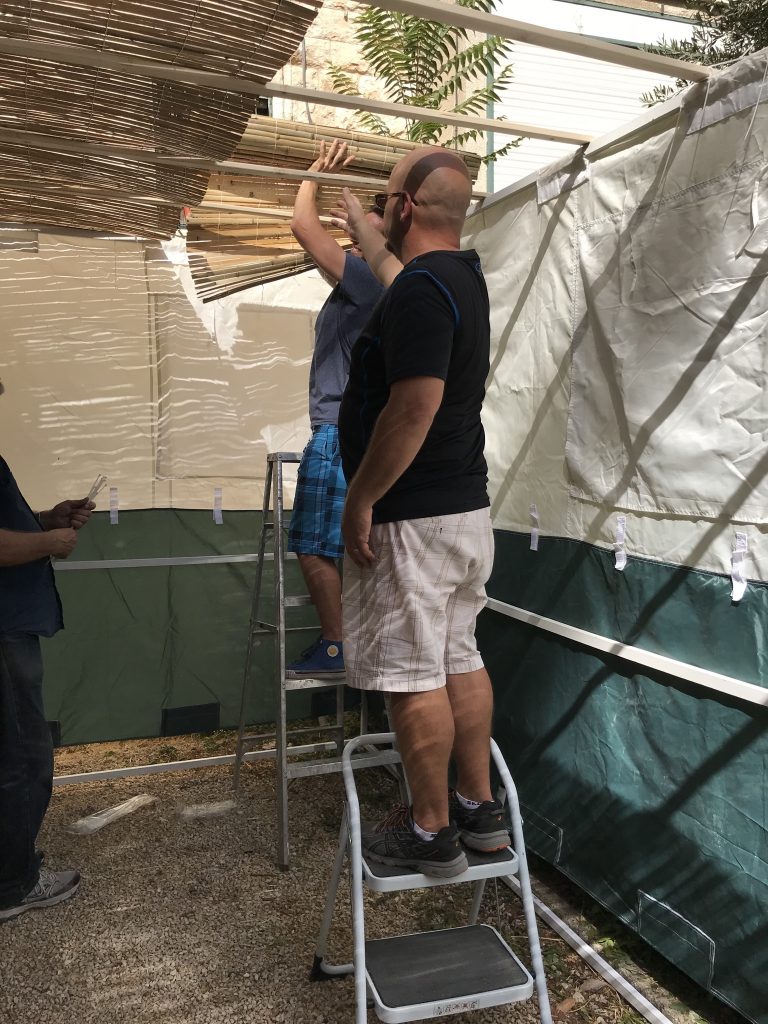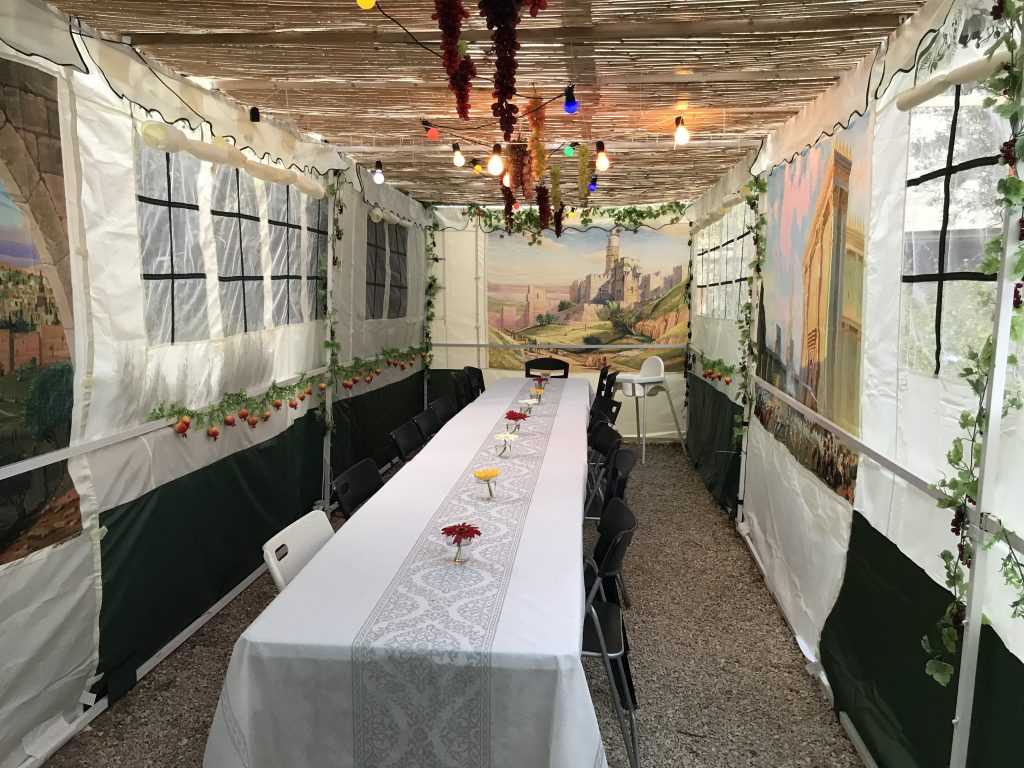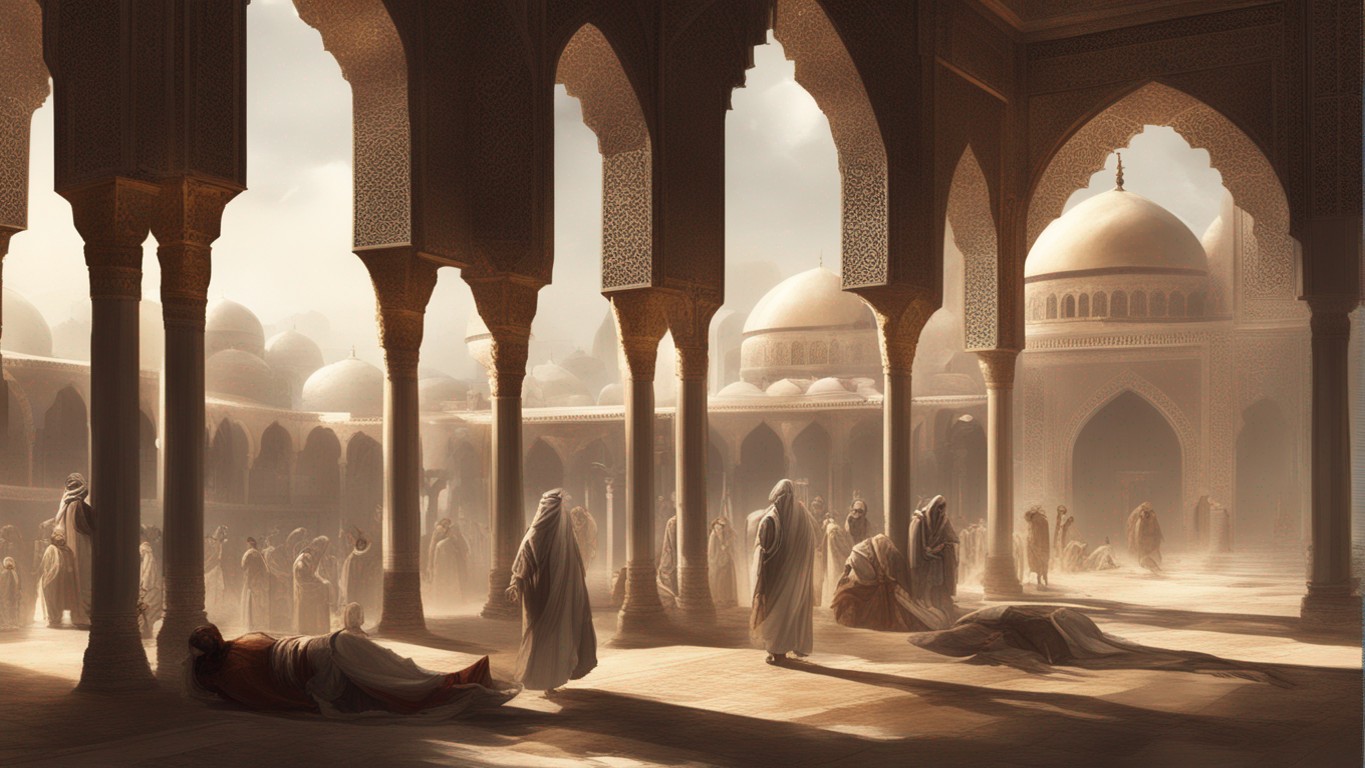As disciples of Jesus, we can choose to be in the same rhythm of the holidays (Feasts) that Jesus followed, and partake in the Feasts of the Bible. Keeping the appointed feasts is not a salvation issue, and please DO NOT feel condemned if you have never recognized the Sabbath or the appointed feasts before. You should, however, be aware there are keys to unlocking truths that we need for understanding God better. Partaking in His Feasts is one way to know Him better. Habakkuk says, “Revelation awaits an appointed time.” Every year we have the opportunity to partake in God’s appointed feasts and gain a deeper revelation of God. Each celebrated chance draws us closer to God.
In Genesis 2:1-3 it says “…God blessed the seventh day and made it holy, because on it God rested from all his work that he had done in creation.”
The Sabbath is a day created for blessings. If you believe in keeping the 10 commandments, the Sabbath is commandment number four. Every Friday night is an opportunity to partake and receive a double portion. In Exodus 16:23 God commanded the people, “Tomorrow is a day of solemn rest, a holy Sabbath to the Lord.” This command was given to the children of Israel and the Gentiles that came out of Egypt with them. The Sabbath was recognized well before God gave Moses the 10 Commandments. Needless to say, Exodus 20:8 says, “Remember the Sabbath day, to keep it holy.” Some Christians start honoring the Sabbath day when the sun goes down on Friday night by lighting a candle and taking communion.
We understand there may be questions about when the Sabbath day begins; besides the biblical references we have, and the Jewish traditions for the day, many countries call the actual day of Saturday the “Sabbath”. Starting in Genesis 1:5 it tells us God’s beginning of the day starts when the sun goes down as it says, “There was evening and there was morning.” Evening came first. Just as God has always used the Jewish people to give the world the Bible, they also have the understanding of how to keep the appointed feasts and when to celebrate them. If you would like more information on this subject here is a video from Rabbi Richman or a book called From Sabbath to Sabbath by Daniel Lancaster.
Information About the Appointed Feasts
For the purpose of this 30-day journey we want to give you some information to help you start a journey, and provide a few resources for you to dig deeper to find out more information about the appointed feasts. This is intended to be a high-level overview of the appointed feasts that are listed in Leviticus 23. In verse 1 it says
“These are the appointed feasts of the Lord that you shall proclaim as holy convocations; they are my appointed feasts.”
It is much easier to learn about the feasts by partaking in them.
This is a list of God’s appointed feasts
(do not let this information overwhelm you; please use it as a reference guide):
- Sabbath – is a time every week you have the opportunity to participate, and this day is also considered to be a rehearsal for the Messianic Kingdom. In Revelation 10:6 it says that time will be no more. In this life you have the opportunity to sanctify and set apart (make holy) time every Friday night through Saturday night as a blessed day just as God did. You will not always have this opportunity. This is a way to seek first the Kingdom of God and His righteousness and receive a double portion from Him.
- Passover (Pesach) – is a time once a year to remember God’s deliverance of Israel from Egypt. There is a Passover Seder meal that helps you experience the exodus of Egypt.
- Feast of Unleavened Bread – (Hag HaMatzot) is a time to remember the 40-years that Israel journeyed in the wilderness.
- First Fruits (Reishit) – is a time of celebration and is an agriculture event. For Christians this is to remember the resurrection of Jesus. Today it is celebrated as Easter.
- Pentecost (Shavuot) – is the 50th day after Passover. It was the day God gave the Torah to Israel in Exodus 19, and it is also the day the Holy Spirit was poured out in Acts 2. Both events had fire, smoke, loud sounds, and are milestones of our faith.
- Trumpets (Rosh HaShanah) – is a time when it is said that the King is in the Field. Here is an excellent teaching on this. The Rabbis say that on Rosh HaShanah the fate of every person is set for the coming year; i.e. who will die, how much money someone will make, the challenges we will have for the coming year, etc. 30 days prior to Rosh HaShanah is the month of Elul, and it is a time of repentance, and a reflection of what it is you need to work on for the coming year to draw closer to God. Leviticus 23:24 says, “Speak to the people of Israel, saying, In the seventh month, on the first day of the month, you shall observe a day of solemn rest, a memorial proclaimed with blast of trumpets, a holy convocation.” The memorial proclaimed with the blast of trumpets is from Exodus 19:16-20, “On the morning of the third day there were thunders and lightnings and a thick cloud on the mountain and a very loud trumpet blast.” This was the day that God gave Israel the Torah, and Israel accepted it. On that day all Israel recognized God was the law giver, God defined what was good and evil, and they all said, “All that the Lord has spoken we will do” (Exodus 19:8). This event was Israel accepting God as King and coronating Him. According to Rabbi David Fohrman, “Rosh Hashanah is the day we are to remember that Israel had a core encounter with God.” This is also a time when God reviews our past year and considers how we lived. You can think of this like when a parent looks at pictures of their kids and exclaims over what they did (God’s memory of us is in His Book of Life). Our life story is actually a memory written as a part of God’s big story. The Rabbis say we also need to consider that God is ultimately King. Paul writes about this in 1 Corinthians 15:20-28. Alephbeta.org has an excellent guide for Rosh Hashanah.
- Day of Atonement (Yom Kippur) – is a day when your story is sealed and locked up in the Book of Life. The final decision of what is going to happen in your life for the coming year is made, and whatever the verdict is, it is sealed. The 10 days between Rosh Hashanah and Yom Kippur are called the Days of Awe. It is a period of time when someone needs to pray for grace, mercy, compassion, and ask God to let them have the best year possible. You should prepare by taking an account of your life for the 30 days prior to these 10 days. The Rabbis describe this period as a time when the gates of heaven are open, and it is an appointed time where God will listen to your prayers of repentance. In Leviticus 16:30 it says, “For on this day shall atonement be made for you to cleanse you. You shall be clean before the Lord from all your sins.” Partaking in this day helps you live out a repentance driven life. Yom Kippur is a day of prayer and fasting, and it has been appointed by God to ask Him to forgive you of your sins.
- Tabernacles (Sukkot/Booths) – is a period of 8 days to celebrate God coming to dwell with us. The first 7 days are the celebration for the feast, and the 8th day is a special day to celebrate the Torah. Leviticus 23:34-36
Isaiah 55:6-7 says, “Seek ye the Lord while he may be found, call ye upon him while he is near.”
Every single one of these days are appointed times when God is telling us He is near. If you would like to be in rhythm with God’s calendar, you can partake at some level in each one of these appointed times. For example, here are some practical ways to participate in them (all dates below are references for the United States.):
If you decide to join in the rhythm of the appointed times, start small. You do not have to do all of them at once. This post is for reference purposes only.
- On the Sabbath, on Friday night when the sun goes down, you can celebrate Sabbath by having communion, a special family dinner, and study the Torah. As you meet others who choose to experience Sabbath, you will grow in commitment to the day. Every family and community have their own traditions, but to help explain how you can share in the appointed time, here is a simplified approach. Here are also 10 free audios on Sabbath from Beth Immanuel Messianic Synagogue. In the back of Aaron Eby’s book, First Steps in Messianic Jewish Prayer there are some helpful prayers. FFOZ also created a book specifically for Sabbath called The Sabbath Table Prayer Book. It is full of helpful hints to lead you through many of the feasts.
- For Passover (Evening of April 22nd, 2024) FFOZ has an excellent book for Christians to follow on Passover called the Cup of Redemption: A Messianic Haggadah for Passover. The dinner will begin after sundown on the 15th, and it usually last until after midnight. Participating in a seder can be very eye opening to the death of Jesus.
- On the Feast of Unleavened Bread, you can participate in this by joining in the counting of the Omer that is explained in Leviticus 23:15-16. Check back around March and we will provide a document for you to follow for each of the days.
- Shavuot (Evening of June 11th, 2024) – Here is an audio on Shavuot from Beth Immanuel Messianic Synagogue.
The Holy Day of Shavuot by D. T. Lancaster
- Rosh HaShanah will begin on the evening of September 15th and ends in the evening of September 17th, 2023. It is a Yom Tov (a good day). It is a two-day event. You should have a meal that is full of sweet foods and nothing sour or bitter. Start the meal by saying a prayer where you are joining yourself to the God of Israel, the God of Abraham, Isaac, and Jacob, asking for forgiveness, and giving Him authority as King. There is a seder before the meal, but if this is the first time you celebrate this day, you can at least eat sweet foods and you will be partaking in it. There’s a dinner meal Monday and Tuesday night. Lunch meals Tuesday and Wednesday. Prayers are said on both days. If you are interested in learning more about how the Jews pray during this time Chabad.org has resources you can check out. Here is another good resource from FFOZ to help you understand the prayers.
Rosh HaShanah and the Silence in Heaven by D. T. Lancaster
- Yom Kippur is the evening of September 24th, 2023, and it starts at sundown. There is a special dinner a couple hours before the sun goes down. Once the sun goes down (make sure to check with your physician before partaking) this starts a 24-hour period of time where you do not eat or drink (not even to brush your teeth). This is a fast day to the Lord. If fasting is too much for you, then at least do not self-indulge on that day. If necessary, Rabbis say it is permissible to eat an olive if needed to eat something. The point is, this is a fast day you are committing to God, confessing your sins, and praying for forgiveness. You can stand in the gap for your friends and family and ask God to forgive them and have mercy. This is also a day many people give charity in memory of their parents to honor them.
How to Observe Yom Kippur by Aaron Eby
- Sukkot is October 29th, 2023, and it starts at sundown. Here is a Sukkot Field Guide. There is a special dinner a couple hours before the sun goes down, and this is a time where the Jewish people will eat at least once a day in a tabernacle, and sleep in it. It is kind of like an outdoor camp site structure (Sukkah.) It is also a time where everyone is commanded to be happy.
Sukkot and the Festival of the Nations BY: Toby Janicki
A Great Explanation of the Feasts from Rabbi Eisner
God has special days — no, they’re more than special, they’re holy. He established these holy days and called His people to celebrate them. Jesus did. His disciples did. So, what happened? Where’d they go? They’re still here and always will be. This series will help you rediscover them.
“Party Like Jesus! Connecting Disciples to God’s Holy Days” is a series specifically designed to introduce people to the calendar Jesus would have lived by. Want to learn more about the biblical calendar and how the festivals all work together to paint a picture of God’s character and His plan for us? Join us each week in this multi-part series for an eye-opening experience that will forever change how you look at the biblical calendar and festivals.


As you spend time with the Jewish people you will gain your own experiences and fall in love with the holidays. Please do not ever feel condemned or obligated to keep the appointed times exactly as the Jewish people do. If you are not Jewish and you want to partake and draw closer to God, then do what you can- your best. The reason we have Jesus as our Messiah is to be able to connect to the Jewish people through Him and live in rhythm with Jesus. If you would like to be in rhythm with God’s calendar, celebrating His appointed feasts is the best way.
Back to Day 26 | Continue to Day 28


